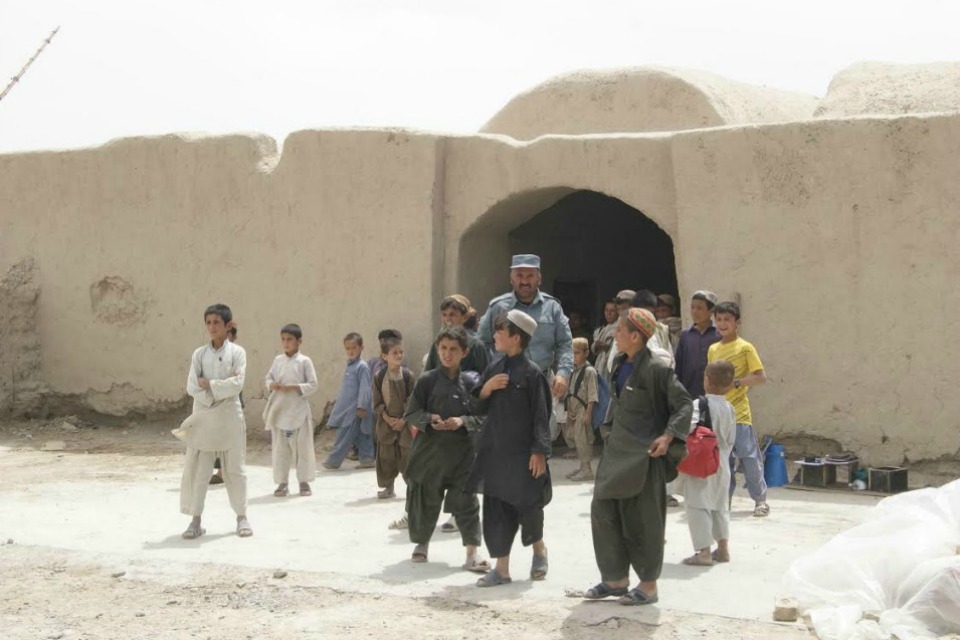"We need to show that we are standing by Afghanistan in the months and years ahead."
Statement by Ambassador Peter Wilson of the UK Mission to the UN at the Security Council UNAMA Debate

Thank you Mr President,
I really do want to raise this opportunity to add my voice to others on behalf of my government to thank you, Special Representative Haysom, for the way that you’ve carried out what I think is an extraordinarily tough job, and one that you’ve done with both flair and commitment. So, on behalf of my government, and adding to what others have said, thank you very much indeed.
Mr President,
As we’ve heard in today’s briefing, Afghanistan still faces an exceptionally tough road ahead. As it works through a myriad of challenges, the latest civilian casualty figures from UNAMA remind us of the continuing human cost. Others have talked about some of the incidents that have happened recently. Looking back over time, nearly 59,000 Afghan civilians have been killed or severely injured since UNAMA’s records began, the vast majority at the hands of anti-government groups. Fifty-nine thousand. That is an extraordinary price to pay.
It’s a price being paid in Badakshan and in Kabul only yesterday. I offer my government’s condolences to all those who lost their lives or who were injured in these shameful attacks, including those working at the Canadian Embassy. Ambassador, I hope that you will convey those up to your government on our behalf.
So, Mr President, it is clear that our job is far from done. And it is clear that the support of this Council and the International Community remains vital to Afghanistan. Our collective action can have a direct, positive impact on the lives of the Afghan people. We need to show that we are standing by Afghanistan in the months and years ahead. I see three areas where we can do so.
First, security. The Afghan national forces are admirably holding their own this year. They are repelling the Taliban’s spring offensive and forcing back Daesh as it tries to expand. But their task is formidable, and the longer term stability of Afghanistan is dependent on their success.
So we can’t just speak about our commitment to supporting Afghan security, we have to demonstrate it too. The NATO Warsaw Summit in July is an opportunity for states to show this resolve. The United Kingdom intends to provide $100 million every year to the Afghan national forces from 2017 to 2020. Meanwhile, 450 United Kingdom troops continue to provide military support and training as part of NATO’s Resolute Support Mission. This includes helping the Afghan National Army Officer Academy, where 1,300 officer graduates have been trained, with more female officers than ever. And in that regard, can I just add my voice to that of Spain’s, in saying that I’m very pleased that we are including, together, Afghanistan on our joint work programme on Women, Peace, and Security.
So I call on other members of the international community to show their support, not just through their words inside this Chamber, but through their actions and financial commitments outside it.
Mr President,
My second point concerns development. Development and Security are mutually reinforcing. Together, we need not only need to build an Afghanistan that is stable and resilient, but also self-reliant and prosperous. Continued development assistance will be critical to this future Afghanistan. So it is equally critical that we do not see a drop-off in assistance this year, particularly given the fragility of the Afghan economy.
So we look forward to the international community coming to Brussels this year ready to make long-term financial commitments to Afghanistan. And we also look forward to the government of Afghanistan setting out the progress it’s delivered so far and its priorities for the coming years, including on economic reform, job creation and tackling corruption.
Mr President,
My last point, and my third point, is that if we want security and development to take hold in Afghanistan, then there needs to be political stability. That’s why the United Kingdom supports the National Unity Government as it tackles Afghanistan’s challenges head-on. We strongly believe that the best chance for reaching a negotiated peace starts with the stability of the National Unity Government, the effectiveness of the national forces, and the support of Afghanistan’s neighbours.
It’s therefore especially important that the governments of Afghanistan and Pakistan work towards a stronger relationship. This is not only to stop the escalation of incidents like the one last week at the Torkham border crossing, but also to tackle the larger common threat of violent extremism.
It’s my firm view that the long term interests of both Afghanistan and Pakistan are aligned.Their success is dependent on part on how much both countries recognise this.
Mr President,
Let me close with this final thought. Afghanistan still faces grave security, development and political challenges. Through the summits in Brussels and Warsaw and through this Council, we have a real chance to show the National Unity Government and the people of Afghanistan that they do not face these challenges alone. We need to keep bolstering the military, keep supporting the economy, and keep building international and regional support. In doing that, we can help ensure that 2016 really does turn, to use the Ambassador of Afghanistan’s words, from the year of survival to the year of consolidation.
Thank you.